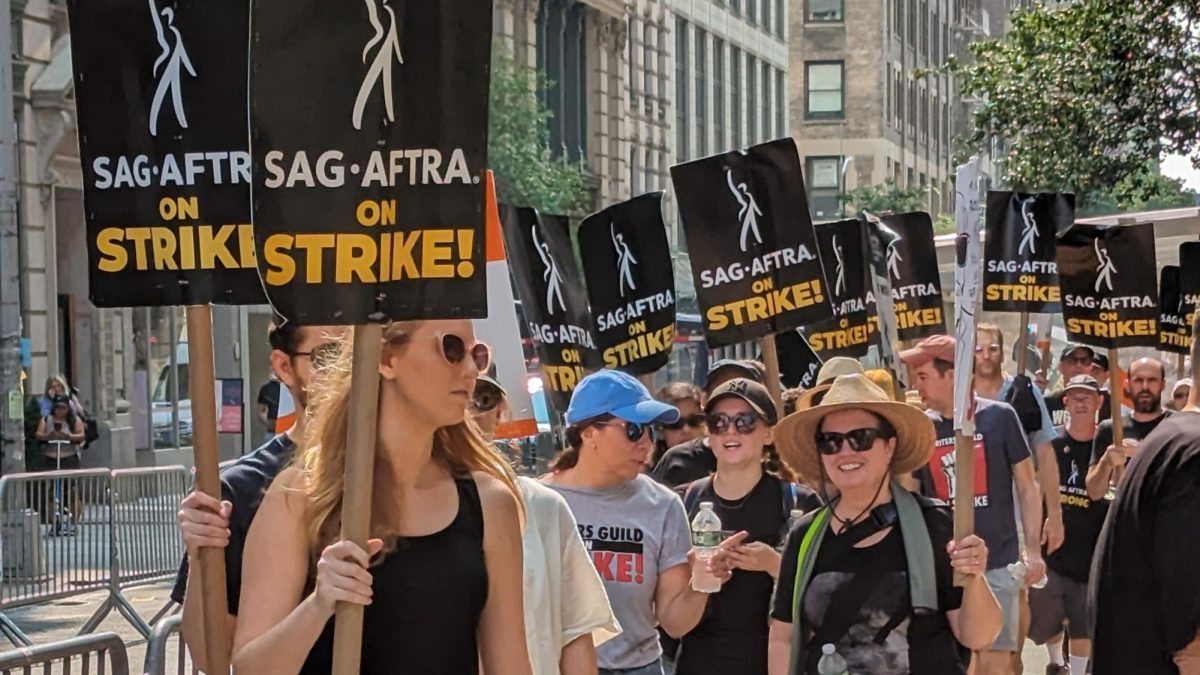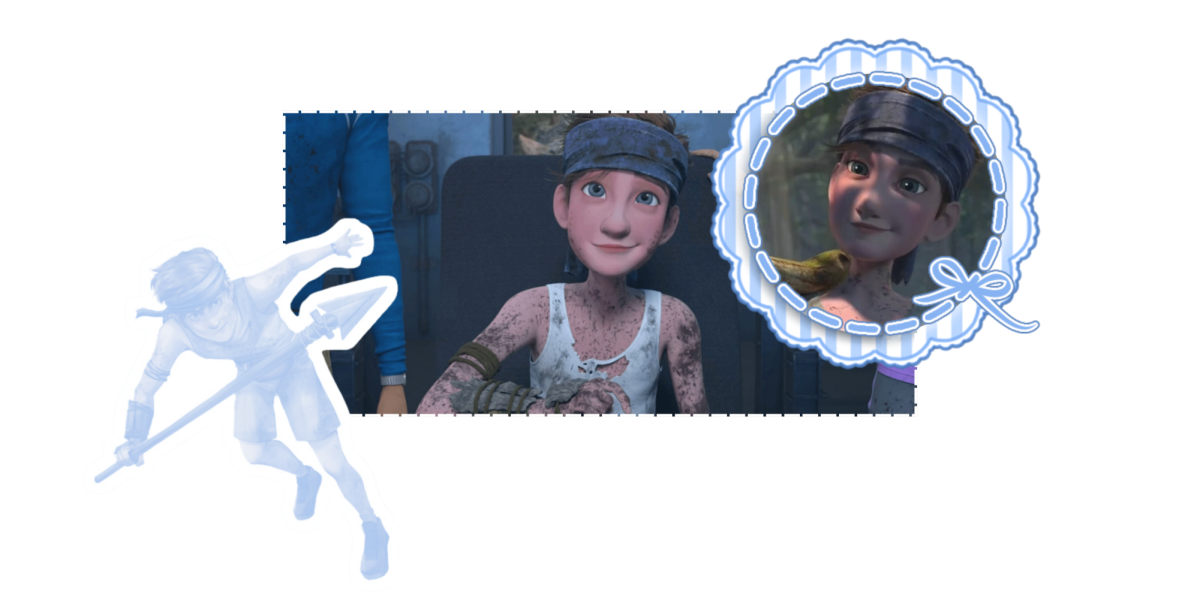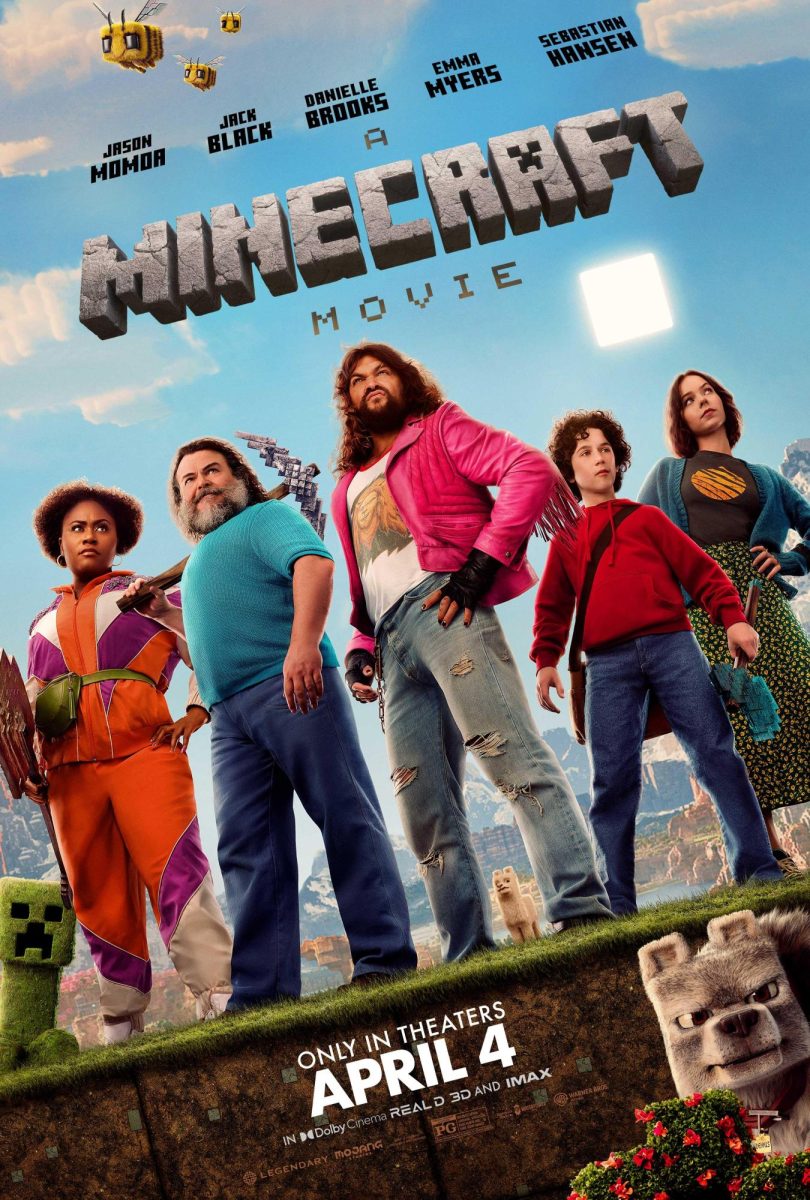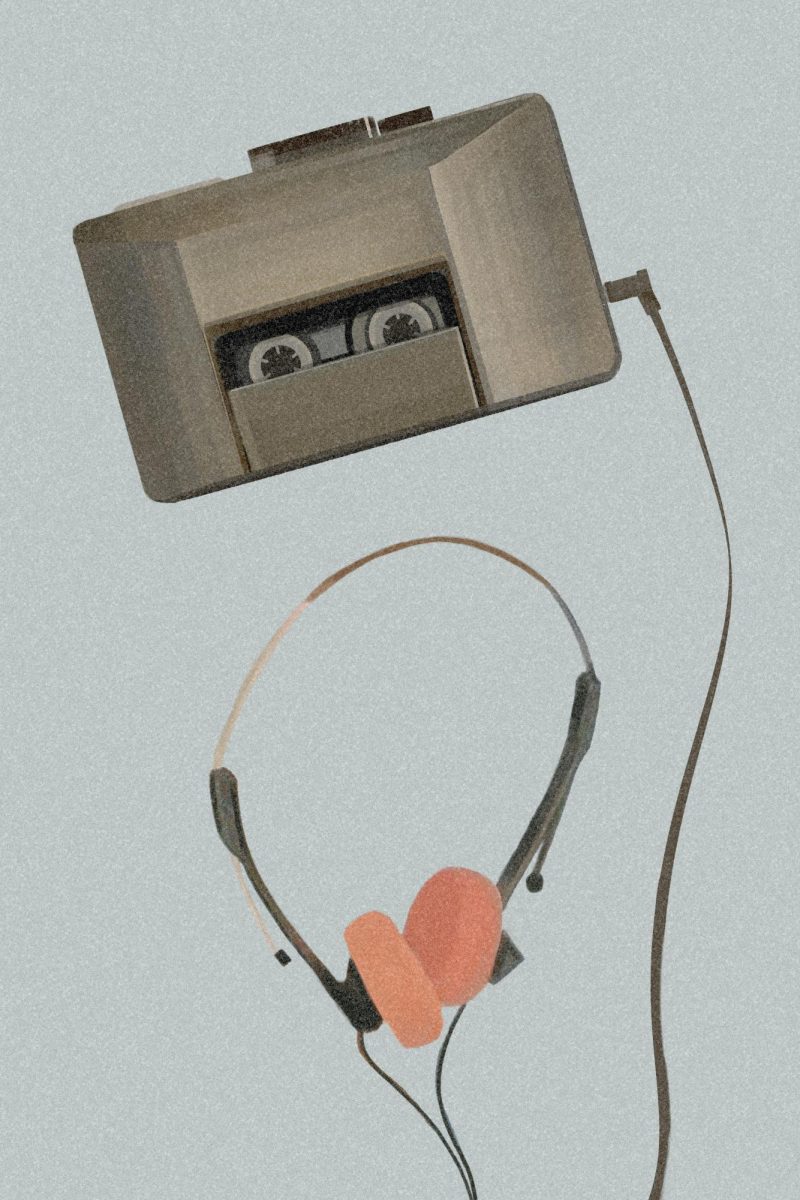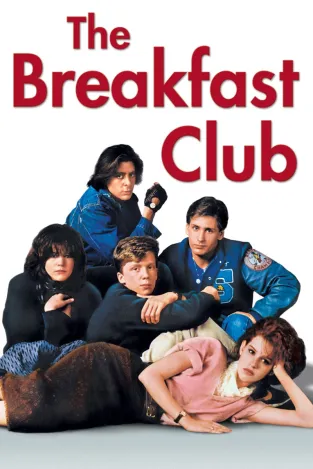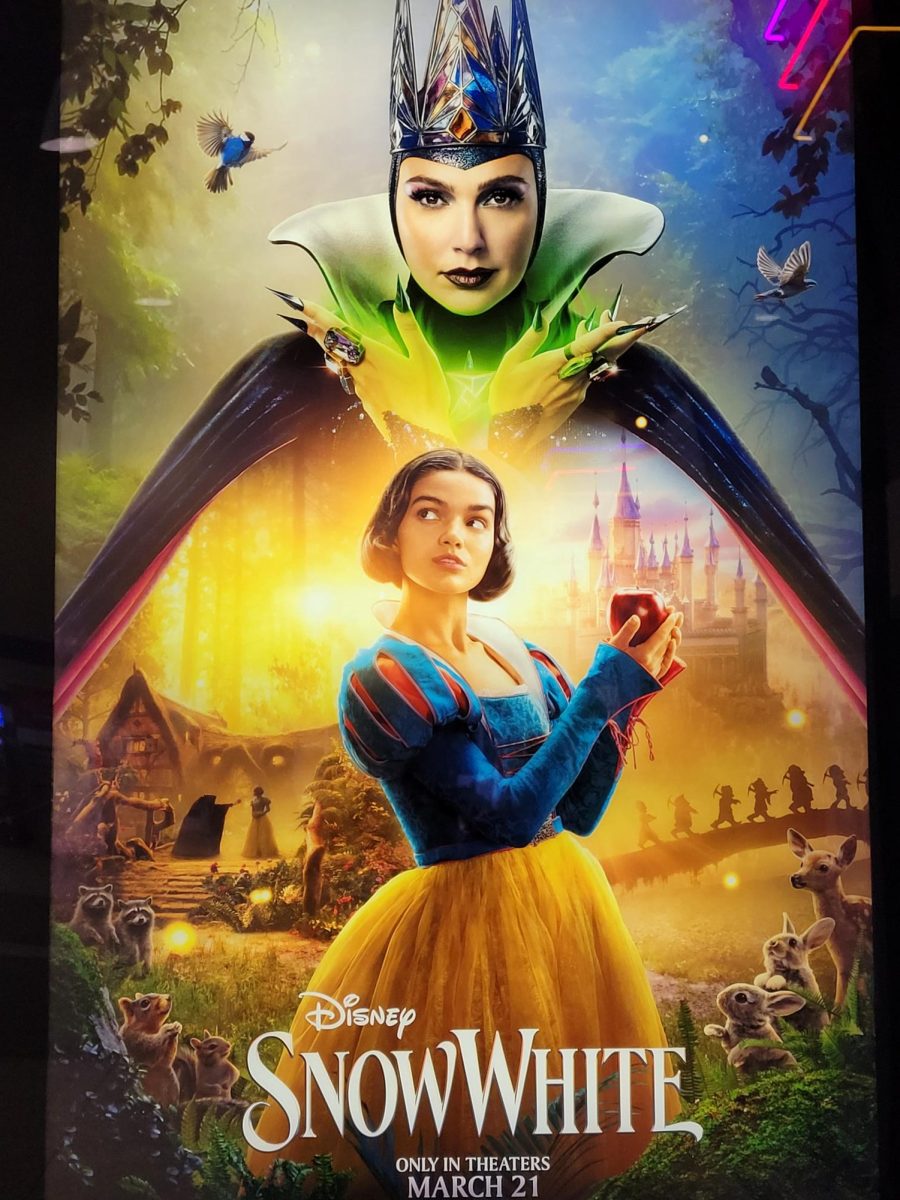Originally published Nov. 12, 2023.
On July 14th, The Screen Actors Guild-American Federation of Television and Radio Artists (SAG-AFTRA) went on strike and the slow crawl of the Hollywood machine came to a halt, bringing all current productions to a halt. Actors from across the country took up signs, joining the Writers in their strike against the American Motion Picture and Television Producers (AMPTP).
September 27th saw the end of the 2023 Writers Guild of America strike (WGA). After 148 days of push and pull with the AMPTP, the WGA came to an agreement, setting the cogs of Hollywood back in motion. Pre-production of shows like Stranger Things 5 and Abbott Elementary began to collect themselves from months on halt, but not all shows could recover as quickly, as movies and shows in the middle of production had actors on strike.
November 11th, SAG-AFTRA announced the end of their strike and the procurement of protection against use of Artificial intelligence (AI) in the film industry. When I say AI, you probably think of a chatbot masquerading as your favorite character, stealing pages and pages of characterizations written by tired students and famous writers. Or you may think about the image generators that cut bits of art from those who dedicate hours to their craft, with cheap imitations full of inhuman flaws. The use of A.I. as a writing tool risks rendering one of the most important parts of film obsolete, which would change the way movies feel.
As we know it today, AI uses machine learning techniques to build its responses. This requires sources to be fed to the AI so it can create by pulling parts of these works together into its own patchwork project. In all, AI doesn’t truly create anything, it just rewrites what it is presented with. Really most of what it does is synthesize information and present it.
“AI lacks one thing most tremendously; human creativity,” says student filmmaker Cameryn Waugh. “There is a uniqueness to movies made by storytellers who love the craft; in a good movie, you can feel the passion and time and blood and sweat. I could never see AI producing a movie that isn’t straight out of Marvel—overdone, underdeveloped…” Studios have also presented the idea of using 3D scans on background actors as a way to easily edit crowds into scenes, an idea that would have actors paid for a single day’s work in exchange for their likeness being used and reused indefinitely.
But is that necessarily a bad thing? AI can whip together pieces in seconds, cutting out the human hassle of brainstorming and dreaming. “I think AI will actually enhance Film Production if it’s used in the correct way,” said law teacher Ross Dunbar. “This [would] mean the human element of writers [would] always be involved while still using the technology to help in the production process.” If AI was implemented in this way, it could potentially cut down the number of human writers the production companies would need to hire for a show, with AI being able to stitch together hundreds of pitches before a human could ever produce a handful.
“AI should stay in the sciences and realms of curiosity where it belongs,” Waugh says. “Art, in all forms, belongs to humans; it always has, and I’m sure it always will.” This sentiment is shared by many others in the industry while some think there could be a way to use AI in a way that wouldn’t plagiarize the works of others or put writers out of jobs.
“I think AI can be used in a non-harmful way to take care of every routine piece of writing that don’t involve much creativity at all,” Dunbar said, using a fake weather report as part of a movie script as an example for possible uses for AI in the film industry.
Following the end of the WGA strike and the implementation of a new agreement between the AMTPT and the Writer’s Guild, the rules of AI in the writer’s rooms have changed:
- AI can’t write or rewrite literary material, and AI-generated material will not be considered source material under the MBA, meaning that AI-generated material can’t be used to undermine a writer’s credit or separated rights.
- A writer can choose to use AI when performing writing services, if the company consents and provided that the writer follows applicable company policies, but the company can’t require the writer to use AI software (e.g., ChatGPT) when performing writing services.
- The Company must disclose to the writer if any materials given to the writer have been generated by AI or incorporate AI-generated material.
- The WGA reserves the right to assert that exploitation of writers’ material to train AI is prohibited by MBA or other law.
* From the WGA Contract Website
At the end of the SAG AFTRA strike, actors have won protection against the use of their image altered by AI. This included limitations of AI ‘resurrections’ of dead actors, the requirement of consent and compensation for actors whose likeness are used to piece together fake performances.

